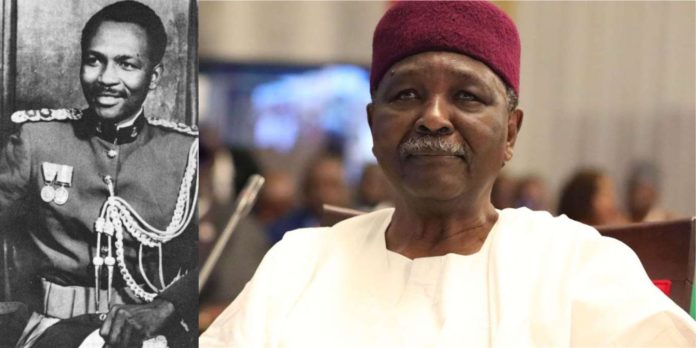Former Nigerian Head of State, General Yakubu Gowon (retd.), has said the breakdown of the Aburi Accord was largely due to Eastern Region leader Chukwuemeka Odumegwu Ojukwu’s insistence on regional control of military forces, a demand the federal government could not accept.
In an interview aired on national television on Wednesday, Gowon recalled that the January 1967 meeting in Aburi, Ghana—convened to find a peaceful resolution to Nigeria’s worsening crisis—was initially a goodwill effort between military officers.
However, Gowon said Ojukwu’s post-meeting interpretation of the agreements raised concerns about the unity and structure of the country.
According to Gowon, Ojukwu proposed that military commands in each region be under the authority of that region’s governor, including himself in the East.
“He wanted those zones to be commanded by the governor. Say you have a military zone in the North, it would be commanded by the governor there, and in the East, by him,” Gowon said.
Gowon noted that such a structure implied that regions would operate semi-independently of the federal military command—a scenario he said was unacceptable to the central government.
“Of course, we did not agree with that,” he added.
Gowon also clarified that the federal delegation did not consider the Aburi summit as a constitutional negotiation or a mandate to restructure military authority.
“We just went there as officers to agree on how to get back home and resolve a problem. That was my understanding, but that was not his,” he said.
After returning to Nigeria, Gowon said he fell ill and could not immediately respond to Ojukwu’s public statements interpreting the Accord.
“Unfortunately, I was having a serious attack of a kind of fever… and I could not make a decision,” he said.
He added that during this period, Ojukwu began making unilateral announcements about the outcome of the meeting.
Gowon said in response, the Federal Government convened a meeting of all regional military governors in Benin to clarify the terms and chart a unified course of action. Ojukwu, however, did not attend the session.
“We met at NIFOR in Benin. And he did not turn up,” Gowon said, expressing regret that the absence may have foreclosed further dialogue. “If he had come to that meeting, we could have resolved it.”
Gowon reiterated that while his government was prepared to honour aspects of the Aburi spirit, including a decentralised structure, it would not permit secession or surrender national military control.
“The only thing I added was that no region can secede from the country,” he said.
The failure of the Aburi Accord is seen as a key turning point in the events that led to the Nigerian Civil War, which erupted in July 1967 and lasted until January 1970.
Over a million people were killed during the conflict.

